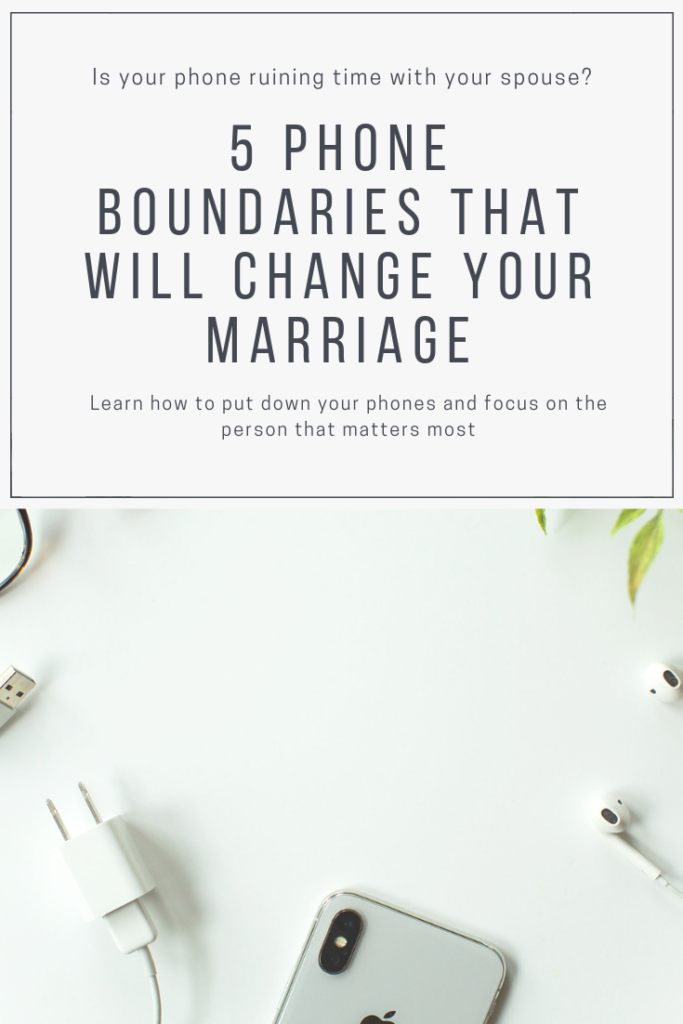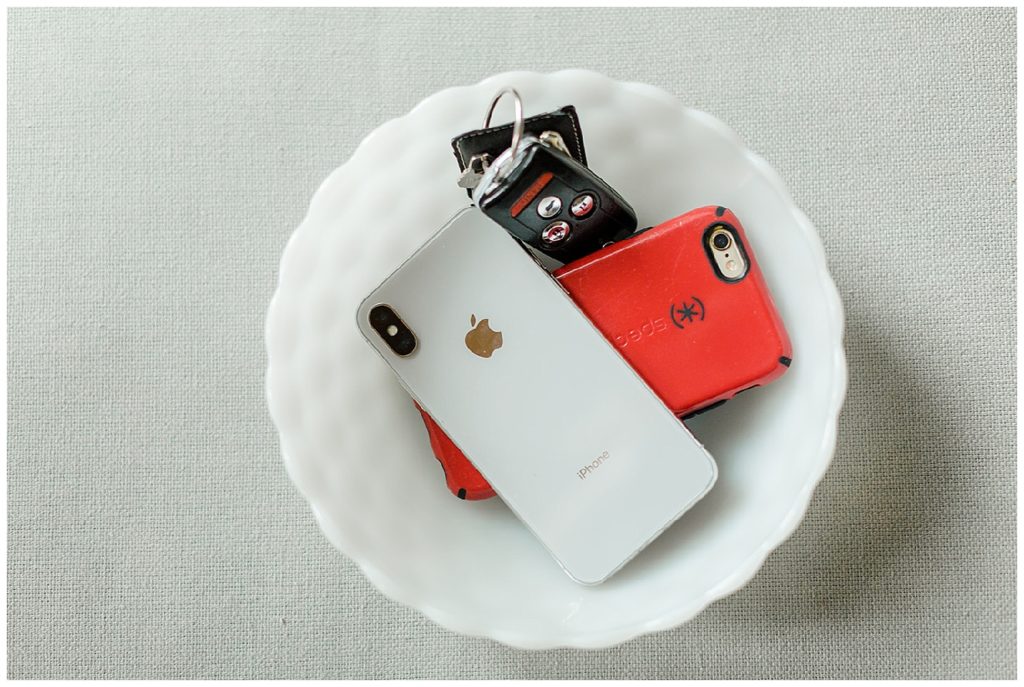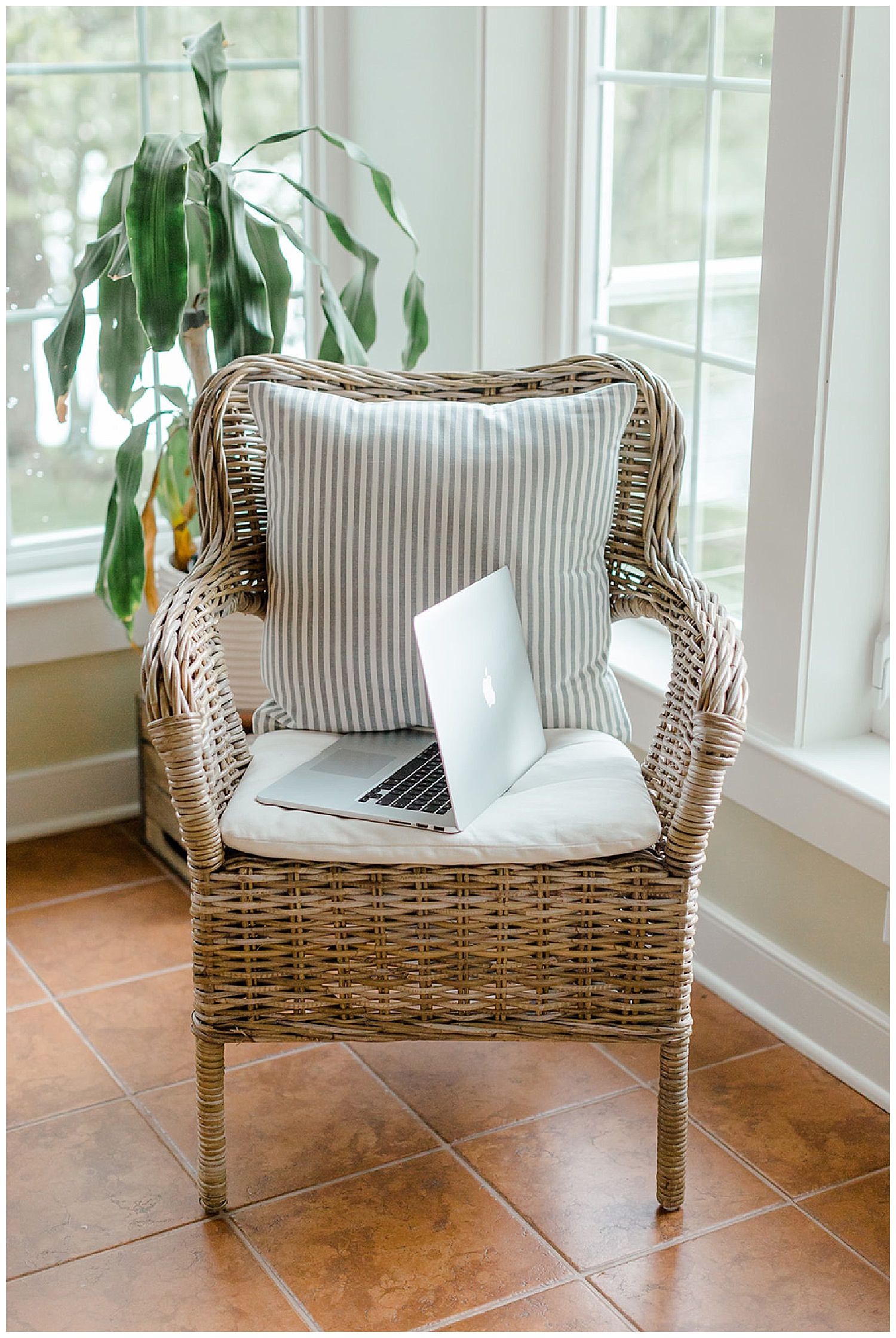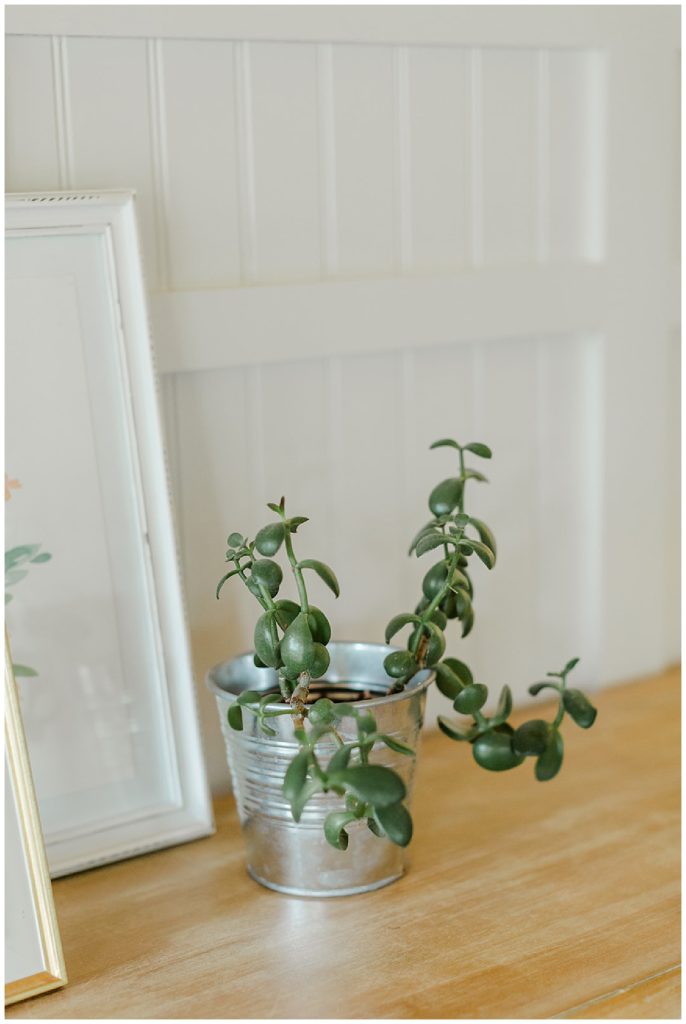
A few weeks ago I (Mary Margaret here) shared a blog about a book we love, The Techwise Family by Andy Crouch. We talked about some of the principles outlined in the book and how they can shape not just our families, but our marriages too. If you missed it, check out our post, Phones and Marriage: One Book that can Change Your Marriage. It’s definitely worth it!
Today, we’re excited to share with you 5 phone boundaries for your marriage. Some of these are 100% Techwise, while others are boundaries we’ve created for our own lives. Either way, they’re definitely worth trying out! They’ll make a bigger difference than you think!
1.) Car rides are for talking not scrolling.
This is such a simple boundary: No phones in the car. Rather than listening to our own music or scrolling through our phone, passengers and drivers should put their phones away. No more listening to your own private music, but rather listen together and sing along to the same tunes. In the Techwise Family, Crouch shares two pieces of valuable information to support why this boundary is valuable. First, according to —- 49% strongly agree that “My family does not know how to have a conversation anymore because we are all on our phones or devices.” This means, that half of us are certain that our conversation skills are lacking. Author of Reclaiming Conversation, Sherry Turkle suggests that “most conversations take at least 7 minutes to really begin” (Crouch 157). However, if we’re using our phones any time there’s a moment of silence, a stray thought, or a new notification, then there isn’t space for that 7 minutes occur.
What would happen if we put our phones away while we’re in the car? What if the passenger and the driver weren’t distracted by the latest news, sports score, or instastory. What would you notice? What conversation would you have? And I’m not talking about only on the long car trips. I’m talking about the 15-minute drive to the hardware store on Saturday morning. Or the 30-minute drive to dinner in the city. Or the 15-minute drive to and from school each day?

2.) Phone Bedtime and Waketime
Crouch suggests this boundary in his book too and again, it’s so simple. Our phones should go to bed before we do and wake up after we wake up. What this means is that instead of carrying our phones around with us and setting them next to our bed, we put them in a designated spot, not in our bedroom, at the same time each night. Then, in the morning we get them after we’ve fully woken up and given ourselves plenty of time to do so. Do our phones really need to be the first thing we look at in the morning and the last thing we see before we go to bed? How about pillow talk with our spouse, or a cup of coffee as we read a few pages of a book in the morning?
For the sake of our marriage, what if we did this two hours before bed? What could two hours of phone free time each night do for our marriages?
3.) Give your Phone a home.
Right now, where does your phone live? In your pocket? On your desk? In your hand? (Guilty. Mine’s on my lap as we speak.) When your phone is that close to you, how easy it to pick up when you reach a moment of boredom. What could you do with those small little moments? I’ve noticed in my own marriage that if there is a lull in the conversation and our phones are nearby we are extremely likely to pick up our phones and start scrolling. But, if our phones are placed somewhere far away, requiring us to “get up” we’re highly unlikely to go get them while instead we make a decision about what to do, watch a show, go to bed, read a book, or we just start talking to each other. Novel idea, right?
Instead of carrying your phone around the house with you, decide on a place for your phone to “live”, maybe a specific spot on the kitchen counter, or a charging station in the entryway. Then, whenever you are home be sure your phone goes to that spot. Turn your ringer on loud, so that if there is a phone call or an emergency, you can hear it from another room. If you know you get a lot of text messages or notifications, turn them off or adjust your do not disturb settings. This simple tip can bring so much freedom.

4.) Phone free Date night.
When you go out on a date, leave your phone in the car. My husband and I just did this the other night and it made a huge difference! Before our daughter was born, we got in the habit of leaving our phones in the car when we went to dinner. It was awesome! But, when you add children and a sitter to the mix, this practice can leave you feeling a little uneasy. But ya’ll, it’s not an excuse! We have options! I’d suggest that one spouse keep their phone in the car, while the other keeps their’s present for communication with the sitter. Maybe you set yours do not disturb and explain that you will only respond to phone calls. Or, you can go totally old school, leave your phones in the car and tell your sitter where you’re going. Remember when your parents would leave you at home with the restaurant phone number? Just because it’s not 1990, doesn’t mean that won’t work! Don’t believe the lie that you HAVE to have your phone. It’s just not true.
5.) Set a timer
Ok, we get it. Sometimes, you just want to scroll through Instagram. Sometimes, you want to catch up on fantasy teams. Or, you want to read the news. We use our phones for so many things now it’s easy to justify why you’re looking at it. It’s ok to check sports scores and the weather or text your college roommates. I love that I can learn about an actor as I watch them in a movie. But the problem isn’t that we want to check the score of the game real fast, the problem is that once we check on the game, we check all the things. We watch the recap videos, follow up on text messages, scroll through Instagram, and check our email. Next thing you know, you’ve spent 30 minutes on your phone and you have no idea why you picked it up in the first place.
We don’t have to be slaves to our devices though.
We can decide how long we want to be on them and why we want to use them. Try giving yourself some designated time to use your phone and set a timer so that you’re controlling how long you’re spending on your device rather than allowing yourself to get sucked in. If you want to check up on some things when you get home from work or after the kids are in bed, make a decision about how much time you will allow yourself to be on your phone. Once the timer goes off, no matter what you’re doing. Put it away. Honor the commitment you’ve made to yourself and each other.

What boundaries will you try this weekend? It’s worth a shot, right? Comment below! We want to know who’s joining us!